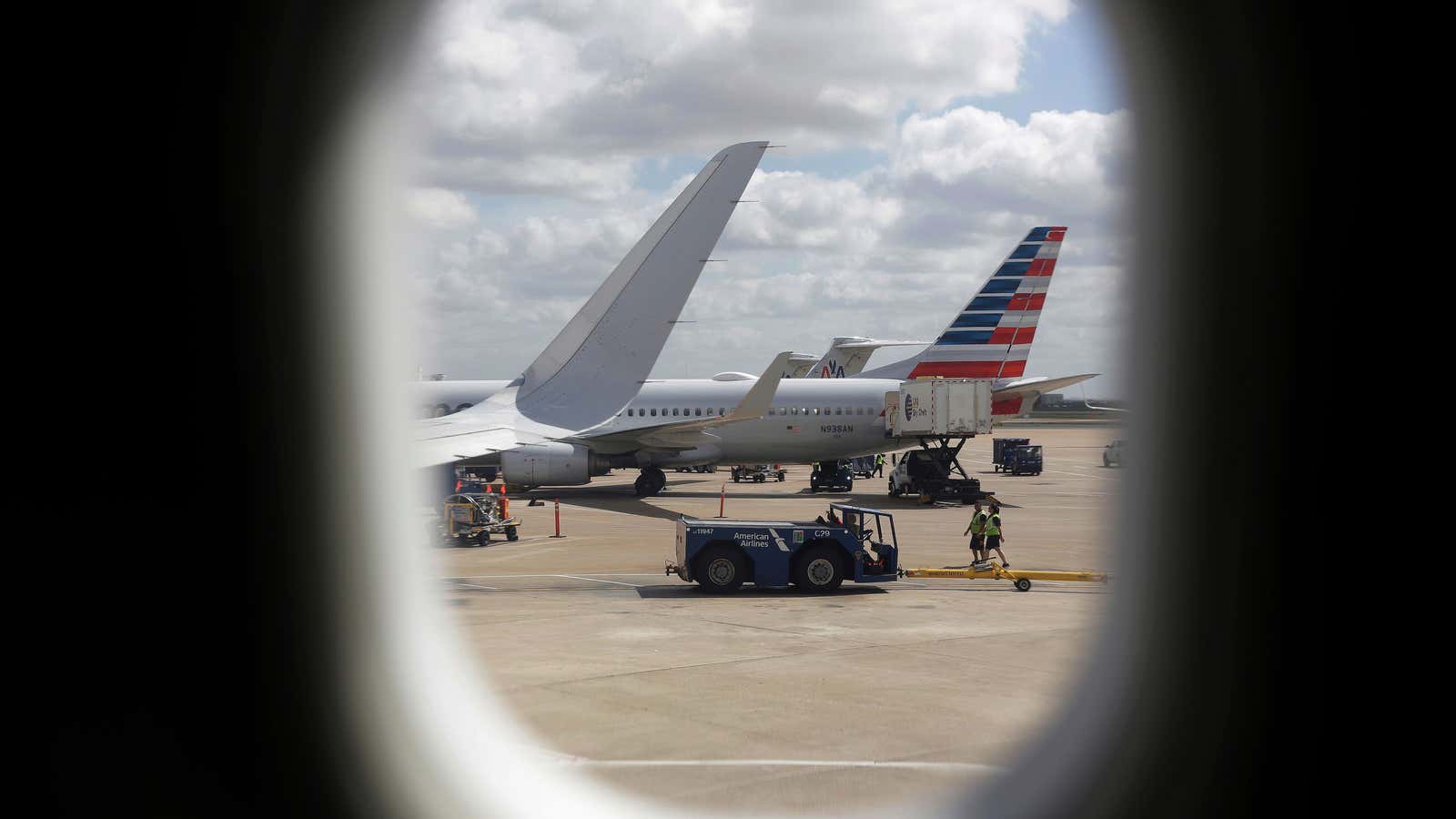Airlines are among the most visible enterprises doing business with the US government as it carries out immigration policies. This week, major US carriers issued statements saying they would not transport children who had been separated from their detained parents by American authorities.
Here is where the biggest American carriers stand and what they have had to say:
Airlines that have issued statements against the policy
Airlines that have not expressed disagreement
Airlines that haven’t take a position
Delta, which didn’t speak up before Donald Trump signed the executive order yesterday (June 20) easing the “zero tolerance” policy his administration had imposed, issued a statement right afterward praising the president’s change edict:
“Delta’s mission is to connect people and we are against anything that runs contrary to that mission. Recent reports of families being separated are disheartening and do not align with Delta’s core values. We applaud the administration’s executive order resolving the issue of separating children from their families at the US border.”
Other airlines—and other deportations
All of the statements issued by airlines refer specifically to the transfer of children separated from their parents; airlines have not expressed their positions when it comes to deportations and transport that doesn’t involve children.
There are many charter airlines that don’t operate scheduled flights and can still be used by the US government to repatriate asylum seekers who have been denied refugee status. Among them: Xtra Airways, based in Coral Gables, Florida, has reportedly been carrying deported immigrants back to Mexico on behalf of US Immigration and Customs Enforcement. It is one of many private companies—including logistics and security contractors—profiting off the tightened immigration grip adopted by the administration.
